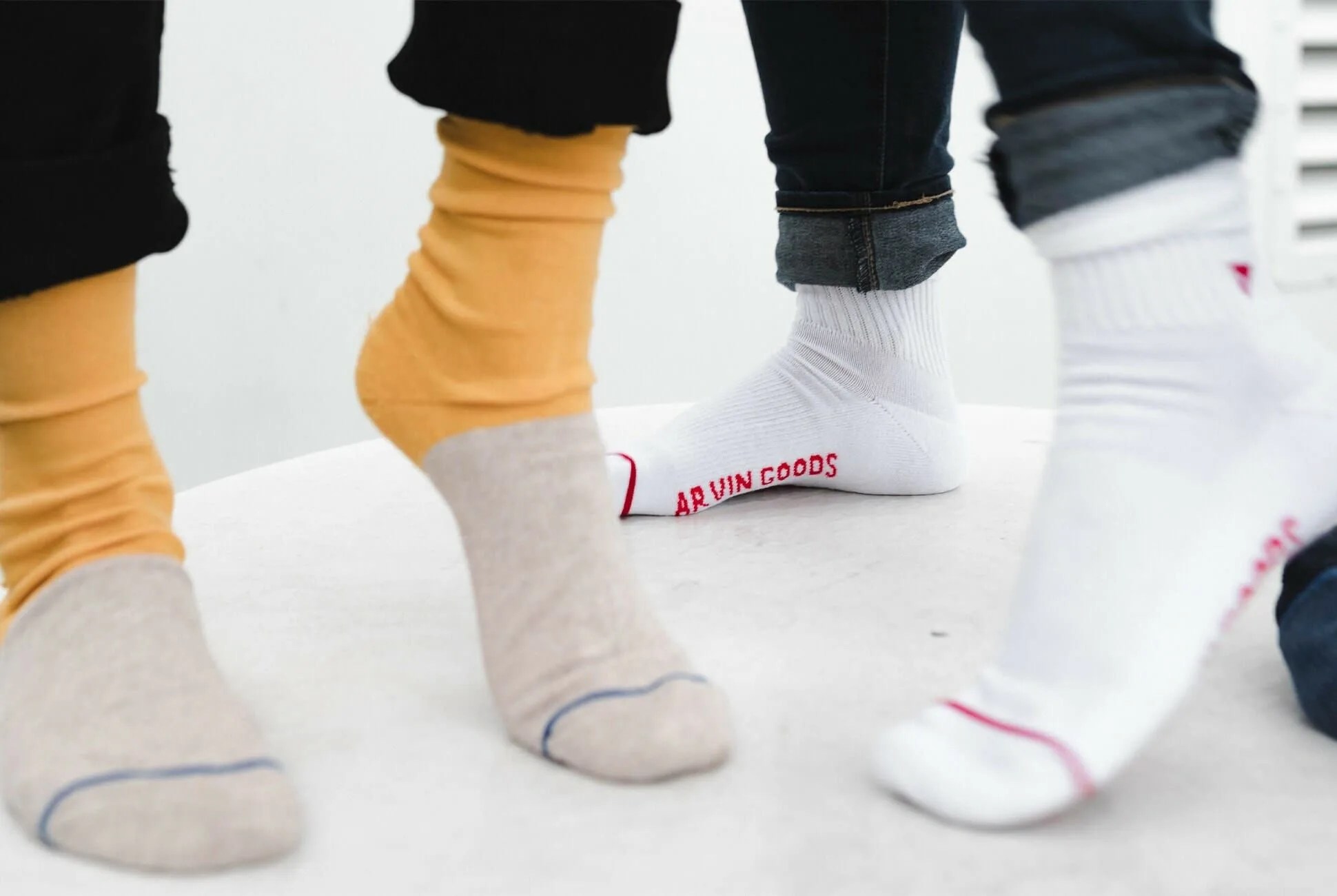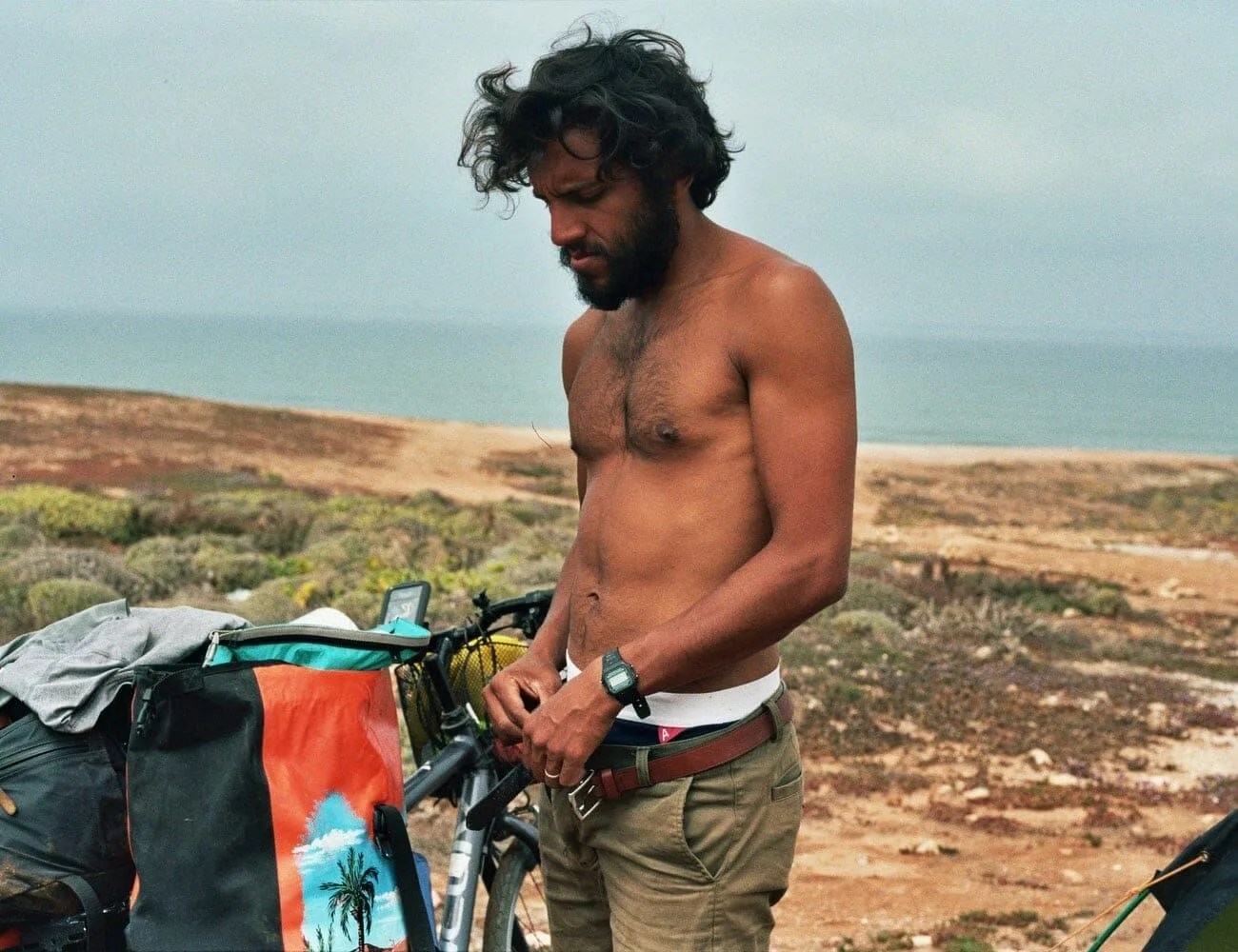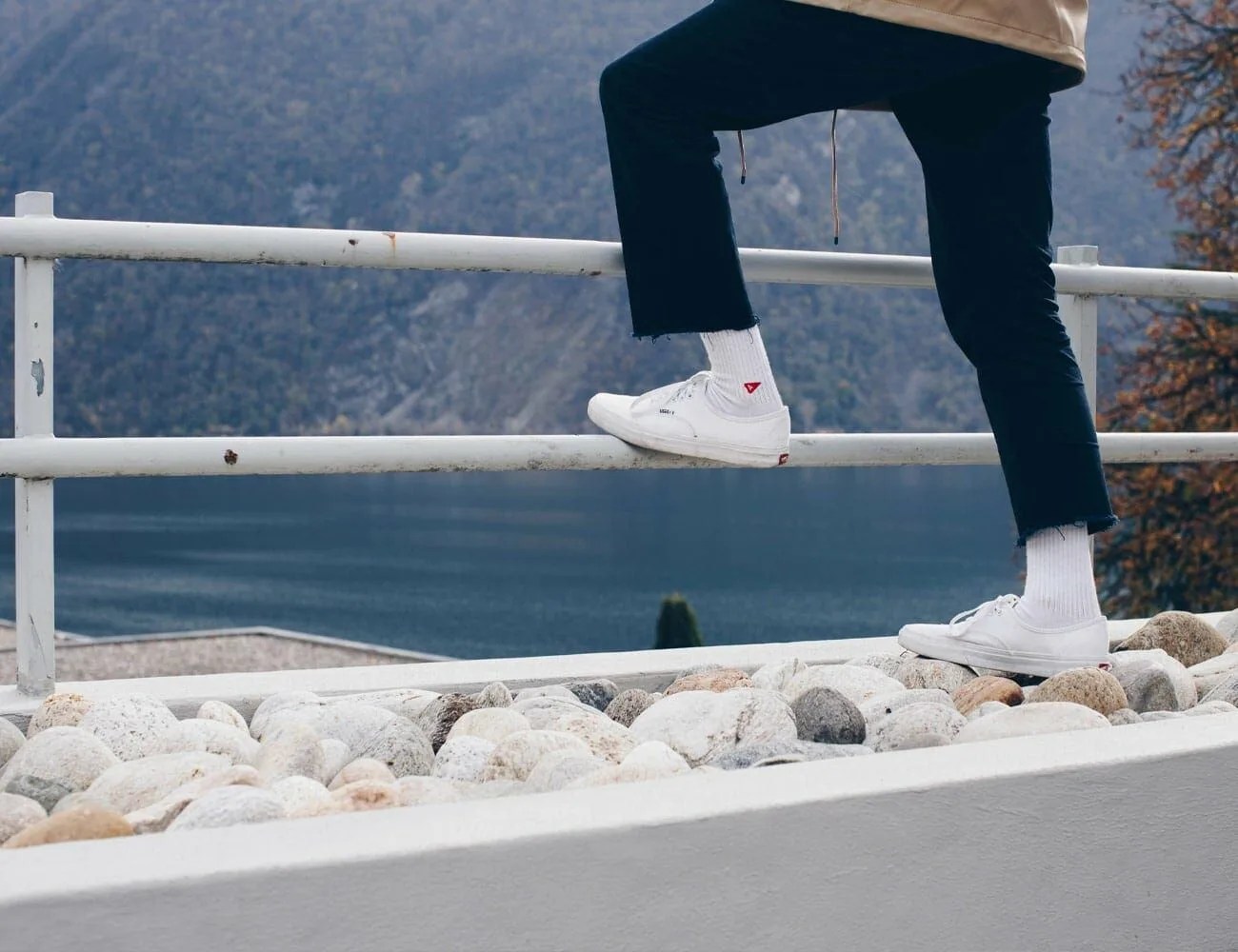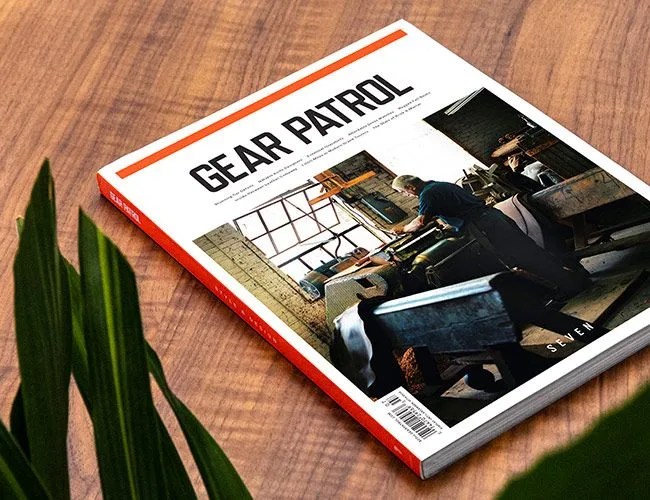From Issue Seven of Gear Patrol Magazine.
Doing the right thing doesn’t mean you have to spend twice as much,” said Dustin Winegardner, the cofounder of Arvin Goods. He was referring to the assumption that sustainably made, or eco-friendly clothes must dwarf traditionally made styles in price. And he’s been steadily disproving that thinking since he launched his line of tasteful socks and underwear — all made from recycled clothing and materials — in 2017.
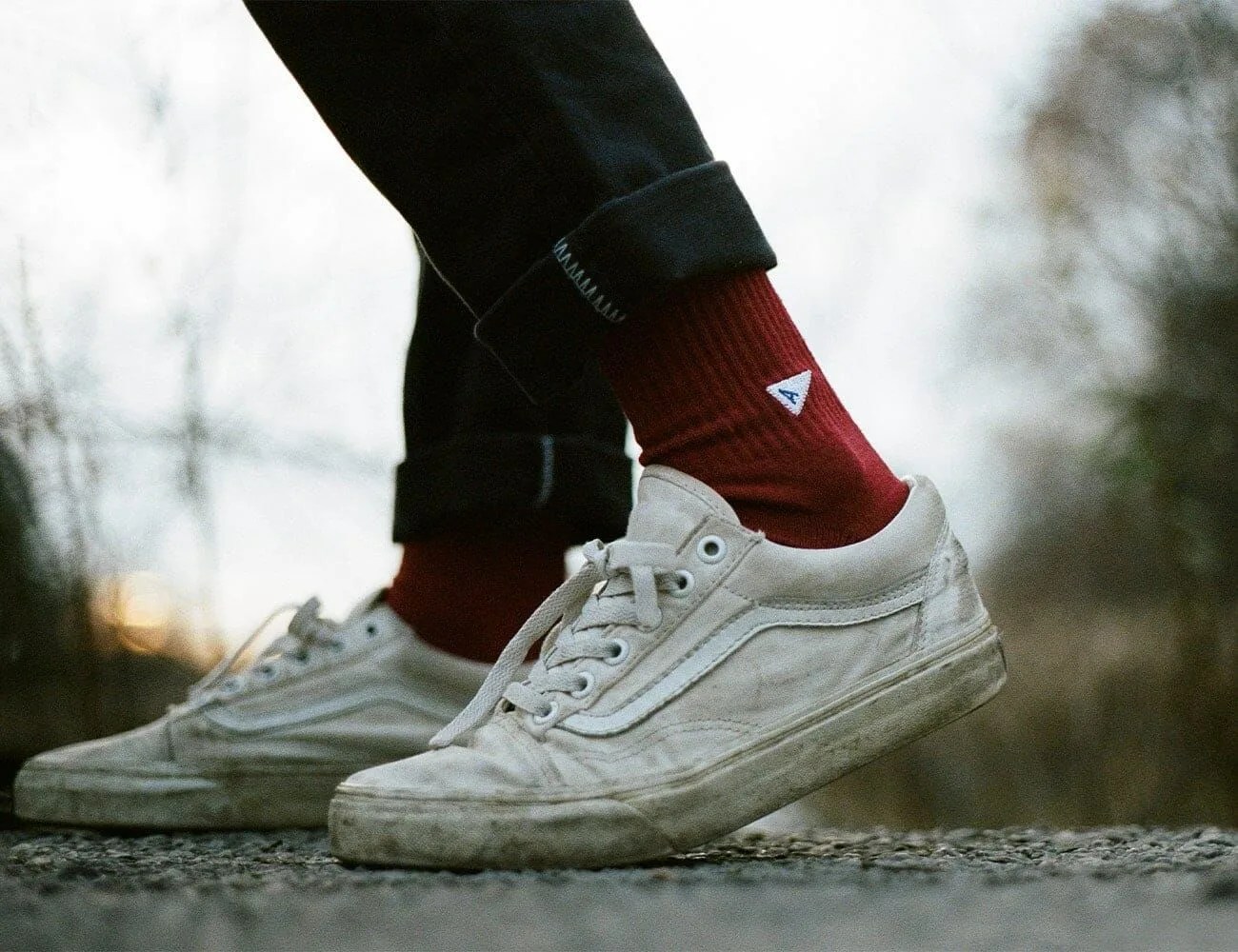
By that time, Winegardner had been working in product development and manufacturing on behalf of other brands for close to a decade. His company, ITC Accessories, sourced materials for the likes of Tommy Hilfiger and Calvin Klein, and he saw firsthand the possibility for a new type of underwear brand to emerge. So, he joined forces with Harry Fricker — a freelance creative director who had worked at Bocci and Finisterre — and founded Arvin Goods. “On the social media platforms, all these basics brands were exploding, but no one was doing it in any sort of sustainable way,” he said. “So I just saw an opportunity to create our own brand around this material we already had and supply chain we already had.”
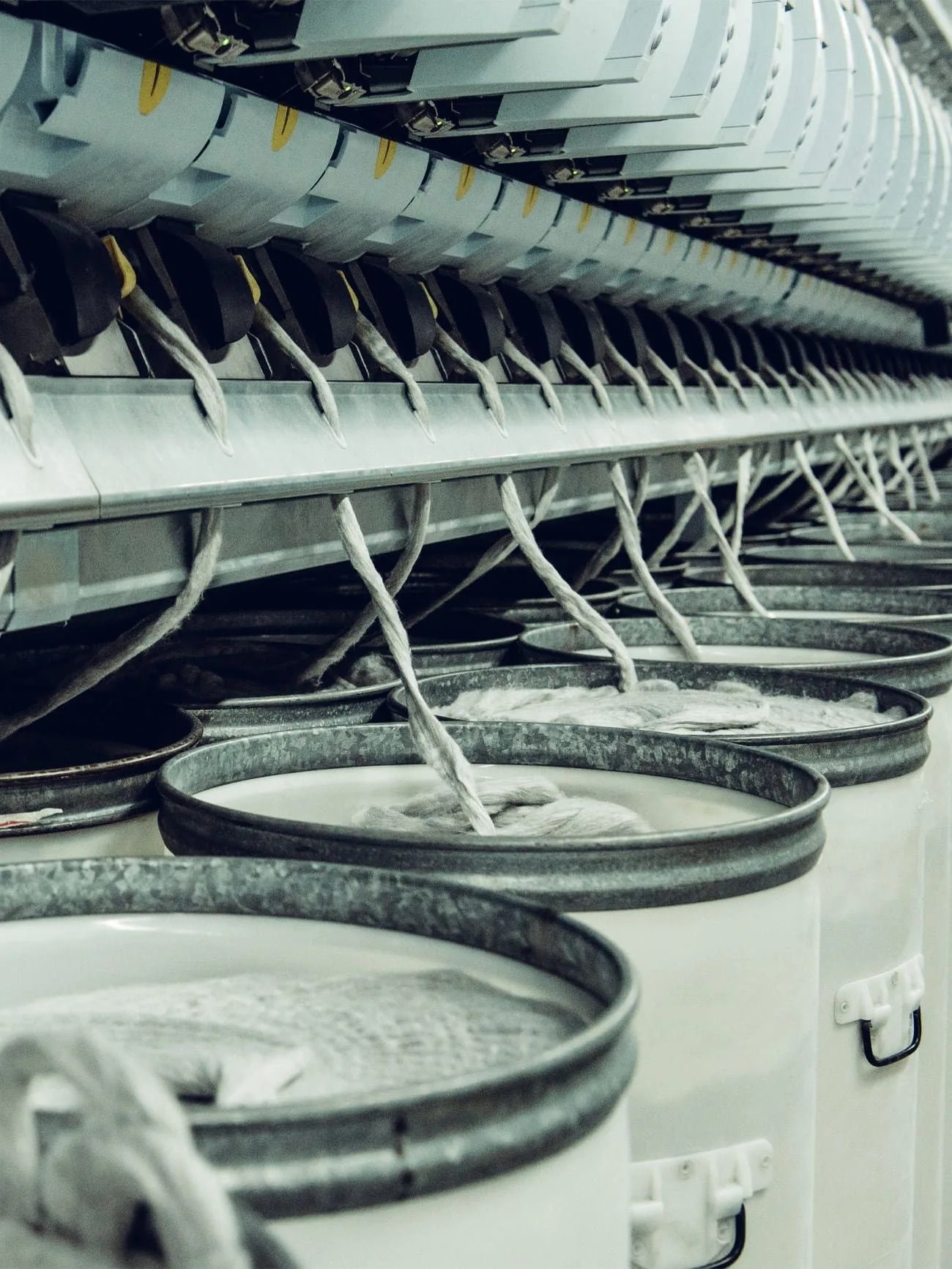
The recycled cotton-poly yarns that Winegardner had access to were an ideal place to start. Using recycled yarns saves fresh water, reduces landfill waste, lowers CO2 emissions and eliminates the need to buy virgin materials from energy-dependent farms and factories. While one kilogram of cotton fabric takes somewhere between 10,000 and 20,000 liters of water to produce, recycled cotton requires virtually nothing. In the U.S. alone, over 16 million tons of textile waste is generated each year, and only a small percentage of that is recycled. “We haven’t even turned on the trickle of the faucet of recycling our waste materials,” Winegardner said. Because basics are replaced more frequently than other garments, they’re a salient place for people to bring sustainable clothes into their wardrobes. Arvin Goods encourages its customers to donate worn garments back to the brand after years of wear. This closed apparel loop keeps the product out of landfills.
